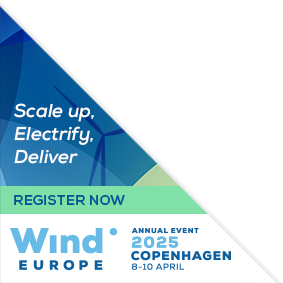Posters
Siblings:
ProceedingsProgrammeSpeakersPostersContent PartnersPowering the FutureMarkets TheatreResearch & Innovation in actionStudent programmePresenters dashboardCome meet the poster presenters to ask them questions and discuss their work
We would like to invite you to come and see the posters at our upcoming conference. The posters will showcase a diverse range of research topics, and will give delegates an opportunity to engage with the authors and learn more about their work. Whether you are a seasoned researcher or simply curious about the latest developments in your field, we believe that the posters will offer something of interest to everyone. So please join us at the conference and take advantage of this opportunity to learn and engage with your peers in the academic community. We look forward to seeing you there!

PO195: Long Term Wind Speed estimated with Machine Learning
Ana Talayero, Leader of Wind Energy Team, Fundación CIRCE
Abstract
Wind energy is no longer the sole mature renewable energy source in the energy landscape. In recent years, solar energy has experienced growth rates surpassing those of wind energy, and it is anticipated that competition between these renewable energy sources will continue to increase in the coming years. One of the key factors ensuring the sustainable growth of wind energy is the precision in evaluating project feasibility. It is essential to understand the expected average wind speed over the 25-30-year lifespan of the wind farm, known as the "Long-Term Wind Speed", to achieve precision in the feasibility study, reducing the expected uncertainty. Accurately predicting long-term wind speed from a small sample of data is a complex task. During their prospecting and development phase, measurement periods for wind speed in projects are typically short, often at most 5 years. For this reason, this study proposes evaluating both conventional methodologies and applying new methods. The most common method for estimating long-term wind speed is the "Measured-Correlated-Prediction (MCP)" approach. It involves comparing data collected from the future wind project's measurement mast with reference data from a tower or reanalysis data spanning at least 20 years. A correlation is established between the collected data and is used to predict the project's expected wind speed over its lifetime. The critical aspect of this process lies in how the correlation is performed, typically involving a single variable linear regression. This study explores whether Machine Learning (ML) models can enhance the relationship between the recorded mast measurement wind speed and the reference wind speed. These methods can also consider variables such as time of day, month, temperature, and/or wind direction.










